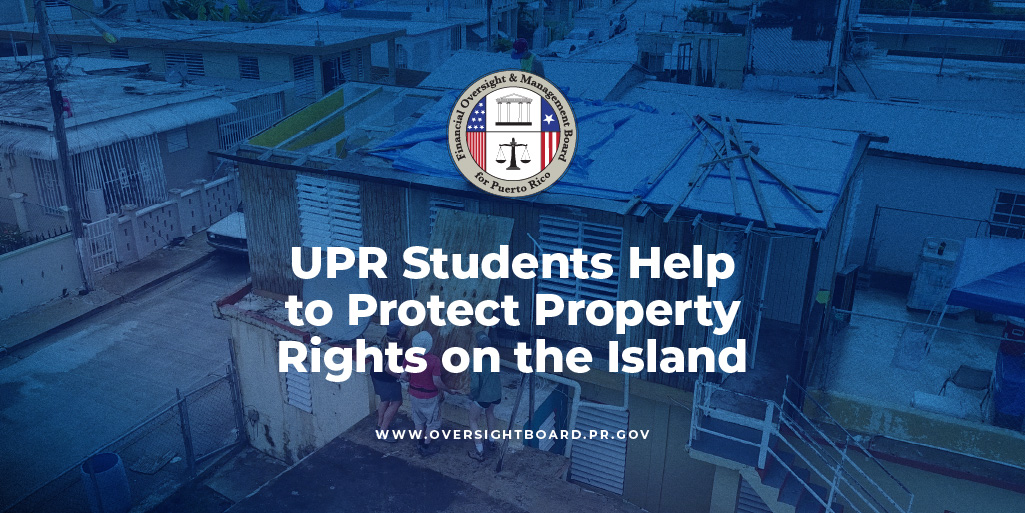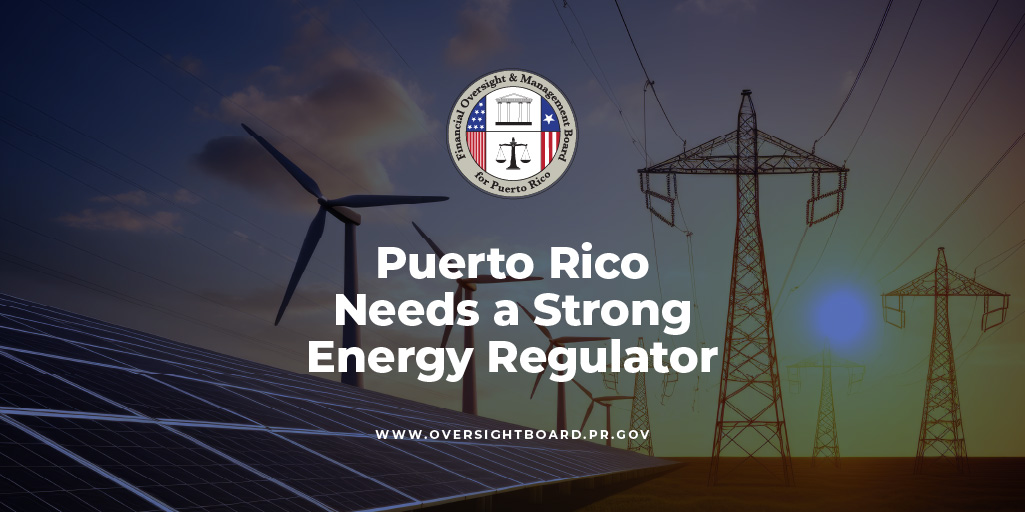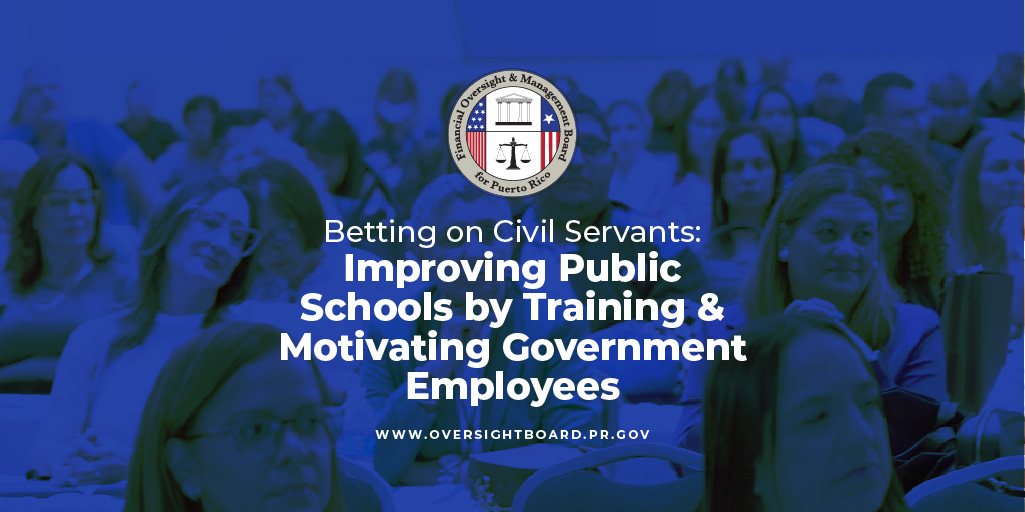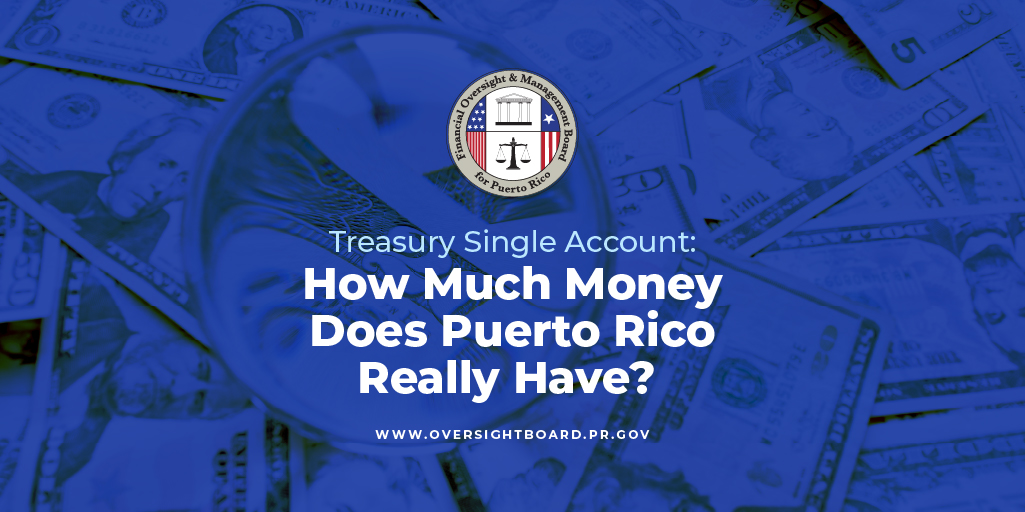- This brief essay discusses what is meant by economic development, and what are the main barriers to obtaining it given the knowledge and resources we have at our disposal.
- Puerto Rico has had many economic development plans, but none have actually been implemented in a continuous manner throughout political administrations.
- This analysis also emphasizes how the Fiscal Plan’s structural reforms may serve as the foundation for a long-term economic development strategy.
Right now, Puerto Rico has a unique opportunity to take control of its future through implementation of broad-based structural economic reforms. Economists have stressed for decades that Puerto Rico’s economic problems are of a structural nature. In the aftermath of hurricanes, earthquakes, and the COVID-19 pandemic, the priority must be to change the trajectory of Puerto Rico’s economy and provide its people with a more prosperous future. It is essential to eliminate barriers to economic development.
But what is economic development, and how can we achieve it?
In the recent public debate, many have been using the term economic development rather loosely. Prioritizing economic development means very different things to different people, as does the role of the Oversight Board in economic development. PROMESA has not given the Oversight Board the tools to implement an economic development plan. But the Certified Fiscal Plan, mandated under PROMESA, defines reforms that are necessary to foster sustainable economic development.
Perhaps the most useful distinction to make is that economic development is much more than economic growth. This is certainly not a new distinction, but it is still an important one. Economic growth is a quantitative concept and simply means Puerto Rico produces more goods and services each year. Economists are generally in agreement that simply producing more does not necessarily mean people are actually better off.
Economic development is a much more qualitative concept, characterized by an economy that is:
- Growing in a manner that improves living standards, health, and education,
- Growing in in a manner that reduces high levels of income inequality,
- Sufficiently diversified and dynamic rather than reliant on one particular sector such as manufacturing or tourism, or overly vulnerable to factors external to the economy,
- On a sustainable path of consistent increases in productivity.
The Oversight Board has commissioned two reports to the Puerto Rican firm Estudios Técnicos, Inc. on two critical issues for economic development. The first report consists of an assessment of the current state of the economic statistics available on the island, along with specific recommendations on how to improve them. Without reliable economic data, developing long-term strategies is even more difficult. The second report consists of a bibliography of the numerous studies and economic development plans that have been presented for Puerto Rico.
As the report points out, every government administration since Rafael Hernández Colon has produced an economic report or plan to develop the economy. This in addition to the studies and plans that have been developed by academia and the private sector. There are many recurring themes: the importance of reducing poverty; strengthening public education; the potential of cooperatives; the emphasis on promoting innovation; and the role of agriculture in our future, which is even more important in the context of food security, to name just a few of the many overlaps. In other words, there is no shortage of studies documenting what needs to be done to foster economic development in Puerto Rico. The problem is clearly one of execution and continuity of implementation between administrations every four years. It is urgent to reflect on which institutions or processes could ensure not only the execution of economic development initiatives, but also their continuity through changes in political administrations.
PROMESA gives the Oversight Board the mandate to achieve fiscal responsibility with pro-growth reforms and renewed access to capital markets. It is the elected government that can and should champion and implement the reforms outlined in the Certified Fiscal Plan. Those reforms are necessary to set the foundation for sustainable economic development.
However, there has been some confusion regarding what the Oversight Board considers structural reforms, so it is worth emphasizing what the Certified Fiscal Plan requires:
- Human capital and welfare reform to increase labor participation and reduce poverty by ensuring the Puerto Rico workforce has the skills for the jobs of today and tomorrow. Puerto Rico needs to revamp workforce development programs. The government also needs to be more proactive in educating residents about the Earned Income Tax Credit (EITC), a major incentive for people to seek and maintain employment in the formal economy. Both initiatives have been highlighted by local organizations as important tools for the reduction of child poverty in particular as well.
- K-12 education reform to improve the quality of public education through systematically collecting, managing, and leveraging education statistics, launching evidence-based curriculum reform, and boosting family engagement.
- Ease-of-doing business reform to improve the business climate and make it easier to establish and operate businesses in Puerto Rico. While the World Bank’s Ease of Doing Business Report ranked Puerto Rico’s business environment among the world’s top 25 in 2006 (22°), the island has plummeted to 65° in 2020. Improving Puerto Rico’s ranking not only allows us to showcase Puerto Rico to the world as a good place to live and invest, but also implies, for example, that a young entrepreneur who wants to start a small business on the island will not be burdened by overly bureaucratic and outdated government processes.
- Infrastructure reform to improve the quality of Puerto Rico’s roads and transportation infrastructure by prioritizing projects for economic impact. According to the US Department of Transportation, only 11% of road pavement on major highways and 1% on smaller traffic arteries are in good condition, significantly below the U.S. average of 81%. The poor quality of transport infrastructure contributes to congestion and hurts the ease of doing business.
- Energy reform to improve the reliability, cost, and sustainability of electricity in Puerto Rico. Puerto Rico has a strong, independent energy regulator, and PREPA reached an agreement with a private operator to manage the grid. Those are two big steps forward. Now PREPA needs to focus on finding a private operator for its power plants to reduce the cost of fuel and foster renewable energy, putting the federal reconstruction funding to efficient use, and exiting bankruptcy.
These reforms are a necessary start to long-term economic growth. Are they enough for the more ambitious goal of sustainable economic development? They are only the foundation for development, they are not enough. Much more needs to be done.
For Puerto Rico, another important element of economic development is significant Federal funding to help with the recovery from natural disasters, particularly the over $20 billion dollars in CDBG-DR and CDBG-MIT money. A significant portion of these funds will be used for grants and loans for small businesses, the development of business incubators and accelerators, workforce training programs, and programs designed specifically to promote food security and to bolster social and economic resilience through urban agriculture, rural agriculture investments, and crop diversification. These initiatives have enormous potential and any comprehensive economic development strategy must leverage ongoing CDBG-DR and future CDBG-MIT initiatives.
Economic development is a priority for the Oversight Board, and we will continue to contribute to the public discussion about Puerto Rico’s future through research and reports on economic development issues. Our vision for Puerto Rico emerges from what is possible, based on the resources we have. Our hope is that the Government chooses reform. Without implementing the economic development initiatives and structural reforms contained in the Certified Fiscal Plan and the will to pursue and execute additional economic development strategies, the challenges that have held back the economy will persist, and Puerto Rico will lose its window to restore opportunity for its people.

More on the reports commisioned by the FOMB
- The report provides an assessment of the current state of Puerto Rico’s economic data.
- The study provides specific recommendations to maintain valuable economic data that is at risk of being lost, while also recommending the creation of additional economic accounts that may play a useful role in policy making.
- The recommendations provided would lead to a greater inventory of statistics in sectors such as tourism & the visitor economy, telecommunications, IT, R&D, engineering & design, among other advanced services.
- The report consists of an annotated bibliography of the most significant studies and economic development plans that have been published during the past four decades.
- The bibliography illustrates there is no shortage of studies documenting what should be done to foster economic development in Puerto Rico. The problem is clearly one of execution, and continuity in implementation across government administrations.
- The collection of studies may serve as a road map for future government administrations, but most importantly by highlighting that we need to focus on actually executing development plans, instead of simply publishing them.




